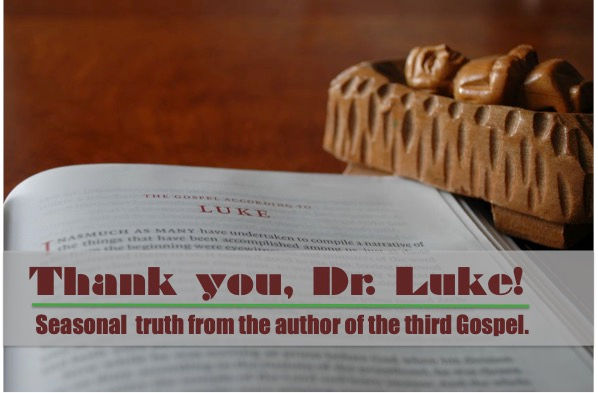Without falling.
- sonnyholmes

- Dec 6, 2019
- 4 min read

One of the significant adjustments in geezerhood is being more alert and balanced when navigating daily life. Yes, today everything is fast and complex, the prime markers of our times. Missteps threaten virtually every movement, especially those involving stairs, complex walkways, or inclines, whether up or down. Every time I visit our family doctor his last words to me are intentional and emphatic, all caps---"THE WORST THING THAT CAN HAPPEN TO YOU FOR THE REST OF YOUR LIFE IS TO FALL". Ain't it the truth boomers. How many of us are experiencing new knees, shoulders, hips, and other body parts because of one flashing moment of carelessness. This past January we buried our wonderful father, affectionately known as The Chester, age 91, as a result of a serious fall. His last year was difficult and trying, a brain injury that changed his life dramatically. It was a vivid and sad illustration of my doctor's frequent warning. And, that's life in the big city these days. Be careful.
Dr. Luke's Gospel was written to keep people from falling. Of course, the falling he warned his readers about wasn't physical. First century readers would have quickly grasped his stated purpose ---
Inasmuch as many have undertaken to compile a narrative of the things that have been
accomplished among us, just as those who from the beginning were eyewitnesses and
ministers of the word have delivered them to us, it seemed good to me also, having
followed all things closely for some time past, to write an orderly account for you, most
excellent Theophilus, that you may have certainty concerning the things you have been
taught.
Luke 1: 1-4, ESV
Luke was inspired by God to write an orderly account of what eyewitnesses had passed to him about the birth, life, mission, passion, and resurrection of Jesus. His immediate purpose was that Theophilus would have certainty about the things he had been taught. That same motivation extends to us as well, more than 2,000 years later.
The word that translators have rendered "certainty" in the ESV and most other Bible versions, is an interesting one. It is the Greek word "asphaleian", a compound of two words, "a", meaning "not", and "sphallow", meaning "to totter" or "to fall". Literally, "asphaleian" means "not to fall". You will note the similarity of this term and our English word "asphalt". In history,"asphalt" is a natural petroleum product known in the scientific community as bitumen. Ancient historians remembered that the walls of Babylon were intact and held together because of the pitch and tar referred to as "asphaleian". Scripture also mentions Moses being placed in a basket of bulrushes that was lined with bitumen. The ancients would have instantly related to Luke's word translated "certainty". We, of course, are most familiar with chemically produced asphalt cement, the pavement of a majority of American roadways. In Great Britain it is commonly called "tarmac".
Dr. Luke wrote the third Gospel with precision and as stated, order, fitting his medical training and practice. He did so because he didn't want Theophilus and the other readers in history to waver, totter, or stumble in knowing the facts about their Savior and Lord. That is not to conclude that the other three Gospels---Matthew, Mark, and John---are any less authoritative or factual. Our Christian worldview affirms the authority and efficacy of the entire Bible, as affirmed in 1 Timothy 3: 16-17 (ESV)---
All Scripture is breathed out by God and profitable for teaching, for reproof, for
correction, and for training in righteousness, that the man of God may be complete,
equipped for every good work.
Each of the Gospel writers had written a specific purpose for the assignment entrusted to them. Those purposes may in turn help us understand why God chose them to present the full account of Christ's life and mission. Luke's Gospel provides some details not seen by the others, more numbers that otherwise presented, and a very orderly presentation of Christ's life and the mission of the early church.
Ours is a world of few certainties. You know, with Benjamin Franklin, most moderns and secularists agree that the only certainties are death and taxes. Approaching the celebration of Christmas 2019 even the truth about Christ's birth and the reason for the season have slipped to the edges of our belief systems. Tellng the old, old story, the truths of Mary, Joseph, the wise men and shepherds, even displaying nativity scenes is off limits beyond church property. Suddenly the manger and the angels and the star are offensive. Many Christians cannot relate the realities about what happened in Bethlehem those generations ago. There's wavering and slippage. Needed is a little asphaleian, certainty.
The other day I saw a December devotional guide on, of all places, Facebook. The instruction was for each of us to read a chapter of the Gospel of Luke every day leading up to Christmas. Since there are twenty-four chapters, that would be a little of Luke's certainty each day. What a brilliant idea for Christmas devotions. Honestly, I had never seen that one before. But what a way for God to give each of us some solid footing to worship Christ.
Thank you Dr. Luke, for helping us to know the truth about Christ and giving us the certainty to celebrate his life all the time, without falling.
https://www.123rf.com/stock-photo/the_gospel_of_luke.html?sti=mdvm6g3cxd6ep6exip|&mediapopup=71241508

Comments